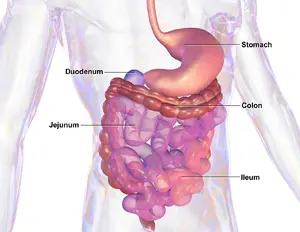
Some people have stomach pain that feels like a dull pain in the middle of their chest. This type of stomach ache has been termed “gassy stomach pain” and is not caused by an ulcer. It may be caused by irritation to the lining of the gastrointestinal tract. Other serious causes can be gallstones in your gallbladder, liver cancer, or fatty liver.
Some of the most common causes of gassy stomach pain.
Eating too much processed food
The average American diet is extremely rich in processed foods and poor in fresh fruits and veggies. Processed foods include those that have been cooked or packaged at a factory (such as canned foods) as well as those that have been refined or stripped down (such as white flour). The primary difference between processed and whole foods is fiber. Fiber is the portion of a plant that is indigestible by humans, but it can be beneficial to the body when eaten. Studies have consistently shown that high-fiber diets are associated with a lower risk of digestive tract cancers as well as hemorrhoids and other problems.
Not enough fiber
Fiber is an important element in healthy digestion, not only because it promotes regularity, but also because it helps prevent constipation and incontinence. Since people who eat a lot of processed foods tend to get less fiber than those who eat more whole foods, they are at greater risk of suffering from stomach pain caused by too little fiber in the diet. This is because fiber has a bulking effect in the digestive tract, helping it to move food along more quickly. In addition, fiber can cleanse the poor toxins from the body by absorbing bad elements such as bile salts.
Lack of exercise
Exercise is essential for keeping your gastrointestinal tract healthy and preventing gas. In particular, regular cardiovascular exercise helps improve digestion and prevents constipation. Those who are physically inactive are more prone to constipation, which can lead to gas because of the buildup of fecal matter in the intestines from not being able to empty properly.
Eating too many acidic foods
Fruits and vegetables are natural remedies for holding stomach gas, but eating a lot at one time can create problems. While fruits and vegetables contain some acidic content, the amount is not enough to cause problems in the gastrointestinal tract, in most cases. Fruits are acidic due to their fructose content, while various forms of vegetable oils contain acids, which are one of the reasons why they make an excellent source of fat. Because these products can promote digestive ailments, they should be consumed in moderation. Foods that contain a lot of fructose can promote diarrhea and other symptoms if they’ve consumed too much at one time.
Stress
Stress can wreak havoc on the body, including on the digestive tract. In fact, problems such as ulcers and irritable bowel syndrome can often be traced back to stress. Furthermore, stress can exacerbate symptoms of heartburn by raising the acid levels in your stomach as well as by causing you to swallow too much air.
Use of acid relievers and antacids
While it is sometimes necessary to use medications for heartburn or indigestion, it is a good idea to cut down on their use as soon as possible. This is because these medications can cause constipation by slowing down digestion and are associated with an increased risk of anal cancer if they’re used regularly over a long period of time. It is also important to note that over-the-counter antacids can delay digestion and possibly make stomach problems worse by blocking the proper flow of bile from the liver.
Hormone imbalances
This may be due to a hormonal problem, for instance, estrogen dominance or low progesterone levels. Estrogen dominance occurs when too much estrogen is present in the body and can cause many symptoms such as depression and anxiety, loss of libido, mood swings, hot flashes, headaches, irritability, and insomnia. Symptoms of low progesterone include fatigue, hot flashes (although these will not occur if you are pregnant), pain during sex, and more.

Intestinal parasites
Another source of abdominal pain could be a parasitic infestation. Parasites can cause a number of digestive problems such as constipation and diarrhea by obstructing the intestines with their presence. Other symptoms include bloating, gas, food allergies, and general malaise. If you suspect that you have a problem with parasites, then the best course of action is to consult your health care provider for an accurate diagnosis and treatment plan.
7 Quick Relief Techniques for Painful Gassy Intestines
- Just let the gas out
- Holding gas can further cause pain such as bloating. It is easier to just let the gas out than to hold it back.
- Flush it Out – Pass Stool
- Try to defecate, as moving stool in your intestine can unblock gasses trapped in between. This can relieve you of further gassy feeling in your stomach and intestines.
- Do not drink carbonated drinks
- Carbonated drinks send lots of gas in your stomach when taken which can cause further bloating and gassy feeling.
- Drink Chamomile Tea
- Some teas such as chamomile aid in digestion and can relieve the pain of a gassy stomach. Other teas such as ginger, anise, and peppermint are all good alternatives too.
- Apply heat to your stomach
- Applying heat to your stomach relaxes the muscle in your stomach or gut that helps the gas to move through your intestines.
- Drink water with Apple Cider vinegar
- Apple cider vinegar is a great solution that aids in digestion and the breaking down of food. Not necessarily removing gas in your intestines or stomach, but it eases the digestion process.
- Take probiotic drinks
- Probiotic drinks aid in digestion. Good bacteria help in digestion and make it easier for gas to pass through.
Conclusion
There are many risks for gassy stomach pain. If you experience gassy stomach pain or full-body aches with a bloating sensation over a period of weeks or months, see your doctor immediately to rule out these more serious conditions.


Leave a Reply